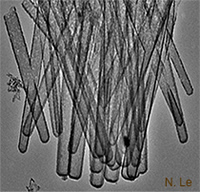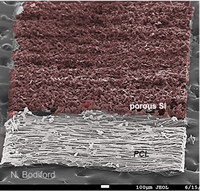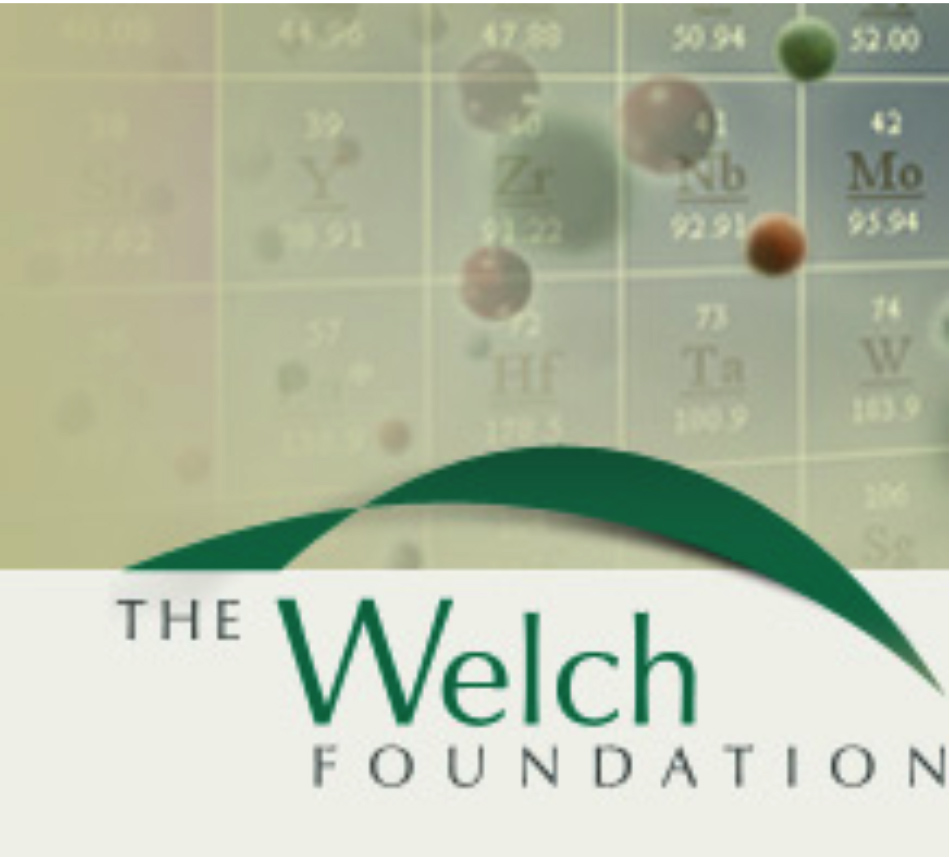


 |
 |
 |
- Research - Publications -Research Group Members - Coffer Brief CV - Links |
Group IV crystalline solids act as a diverse class of materials for basic research, aesthetic interest, as well as an amazing number of technological applications. In particular, the element silicon (Si) is of great importance as a semiconductor in a broad range of structures, especially in the area of modern device electronics. However, at the nanoscale, elemental Si also possesses a number of interesting fundamental properties relevant to medical diagnosis and therapy. Broadly defined, my research interests center on multifunctional semiconducting nanostructures relevant to biomaterials and energy. Nanoscale Silicon-Based Biomaterials. We seek to successfully construct rapidly-adaptive platforms based on tunable artificial nanostructures that are bioactive, and whose activity can be altered not only by physical dimension and chemical composition but also external stimuli such as current, light, and/or heat. Our most recent efforts focus on:
New Nanoscale Silicon Materials for Energy Applications. Another area where nanostructured elemental silicon can play a useful role lies in the domain of energy. We are currently taking advantage of some of the preparative routes described above for silicon nanotubes, along with developing new eco-friendly ‘green’ routes to porous silicon, for the purpose of harvesting novel platforms relevant to photovoltaics as well as energy storage (batteries).
Selected examples of structures from both categories can be found in our publication list.
Funding sponsors |
   |
Recent Selected Publications - “Control of CH3NH3PbI3 Perovskite Nanostructure Formation through the Use of Silicon Nanotube Templates,” Roberto Gonzalez-Rodriguez, Neta Arad-Vosk, Naama Rozenfeld, Amir Sa'ar, Jeffery L. Coffer, Small, 2016, 12, 4477–4480. - "Influence of Surface Chemistry on the Release of an Antibacterial Drug from Nanostructured Porous Silicon," Mengjia Wang, Philip Hartman, Armando Loni, Leigh T Canham, Nelli Bodiford, Jeffery L. Coffer, Langmuir, 2015, 31, 6179–6185. - "A novel pressed porous silicon-polycaprolactone composite as a dual-purpose ophthalmic implant,"Yazad Irani, Yuan Tian, Mengjia Wang, Sonja Klebe, Steven J. McInnes, Nicolas H. Voelcker, Jeffery L. Coffer and Keryn A. Williams,Experimental Eye Research, 2015, 139,123-131. - "Porous Silicon Nanotube Arrays as Anode Material for Li-Ion Batteries," Alexander T. Tesfaye, Roberto Gonzalez, Jeffery L. Coffer, Thierry Djenizian, ACS Appl. Mater. Interfaces, 2015, 7, 20495-20498.
|